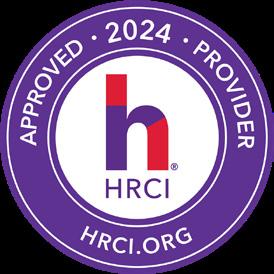






James Freed created a Facebook profile. He eventually converted his profile so that anyone could see and comment on his posts. In 2014, Freed updated his Facebook profile, to reflect that he was appointed city manager of Port Huron, Michigan. He posted items about his personal life, such as photos of his family’s activities. He also posted information related to his job as city manager, including city events and initiatives, and he solicited feedback from the public on issues of city concern. Freed often replied to those who would comment on his page, including by answering inquiries from city residents. From time to time, Freed deleted comments and posts he found to be “derogatory” or “stupid.”
When the COVID-19 pandemic began, Freed posted: 1) personal items (photos of family); 2) general information (COVID case counts and weekly hospitalization numbers); and 3) information about his city manager job (the city’s hiring freeze and a screenshot of a press release about a relief package that he helped prepare).
A man named Kevin Lindke commented on Freed’s post and expressed his displeasure. Initially, Freed deleted Lindke’s comments. Then Freed blocked Lindke from commenting at all. Once blocked, Lindke could see Freed’s posts but could no longer comment on them.
Lindke sued Freed under 42 U.S.C. section 1983, alleging that Freed had violated Lindke’s First Amendment rights. Lindke argued that Freed’s Facebook page was a public forum, and therefore, Lindke had a right to comment on it. Lindke argued that Freed unlawfully discriminated by deleting unfavorable comments and blocking their authors.
The district court granted summary judgment to Freed, finding that only state action can give rise to liability under section 1983, and that the personal quality of Freed’s posts, absence of “government involvement” with his account, and lack of posts conducting official business meant that Freed managed his Facebook page in a private capacity. The Sixth Circuit affirmed, noting the test for state action is “whether the official is performing an actual or apparent duty of [their] office” or if they could not have behaved as they did “without authority of [their] office.” The U.S. Supreme Court granted certiorari.
Section 1983 is a federal law that provides a cause of action against every person who, under color of stateaction, deprives someone of a federal constitutional or statutory right. The Court explained it was required to analyze whether Freed, as a city official, engaged in state action or functioned as a private citizen.
While public officials can act on behalf of the State, they are also private citizens with their own constitutional rights. The Court sought to balance those two extremes. The Court said that the distinction between private conduct and state action turns on substance, not labels. Private parties can act with the authority of the government, and government officials have private lives and their own constitutional rights. Categorizing conduct, therefore, can require a close look.
The Court held that a public official’s social-media activity constitutes state action under section 1983 only if the official: 1) possessed actual authority to speak on the State’s behalf; and 2) purported to exercise that authority when they spoke on social media. The appearance and function of the social-media activity are relevant as to the second factor, but they cannot make up for a lack of state authority as to the first.
The Court explained that the first factor requires that the conduct causing the deprivation be fairly attributable to the government’s power or authority. Private
action lacks this, no matter how “official” it appears. Here, Lindke argued that Freed’s social-media activity constituted state action because Freed’s Facebook page looks and functions like an outlet for City updates and citizen concerns. The Court disagreed, finding that Freed’s conduct was not attributable to the State unless he was “possessed of state authority” to post city updates and register citizen concerns, not just that because he has some authority to communicate with residents on behalf of the city.
As to the second factor, the Court explained that generally, a public employee purports to speak on behalf of the government in their official capacity when they use their speech to fulfill job responsibilities. The inquiry is not whether making official announcements could fit within their job description; it is whether making official announcements is actually part of the job that the government entrusted the official to do.
Here, the Court found ambiguity as to whether Freed’s posts invoked his official capacity. The Court said that many public officials have governmental authority to interact with the public, and it may not be easy to discern a boundary between their public and private lives. The
Court found that a person suing a public official under section 1983 must show that the official is using their governmental authority in specific posts. And when there is doubt, additional factors might cast light—for example, an official who uses government staff to make a post will be hard pressed to deny that he was conducting government business.
Finally, the Court cautioned governmental officials who mix private and official speech on the same social media account. Freed’s Facebook page was not designated either “personal” or “official,” raising the prospect that it was “mixed use”—a place where he made some posts in his personal capacity and others in his capacity as city manager. Categorizing posts that appear on an ambiguous page like Freed’s is a fact-specific undertaking in which the post’s content and function are the most important considerations. The Court reversed the Sixth Circuit and remanded the case for further evaluation.
Lindke v. Freed, 218 L.Ed. 2nd 121(2024).
Note:
The Court warned that public officials who use one social media page for both personal and official use expose themselves and their agencies to greater potential liability.

The El Centro Regional Medical Center (ECRMC) challenged the proposed decision of an administrative law judge (ALJ). The ALJ concluded that the hospital violated the Meyers-Milias-Brown Act (MMBA) when it failed to pay its Laboratory Unit employees an annual raise. The ALJ determined that the hospital’s decision to not pay the wage increase was a unilateral change that also constituted discrimination and interference.
The ALJ’s proposed decision included a backpay award for all current and former Laboratory Unit employees who began employment before January 1, 2021, for an amount equal to two percent of any wages earned between July 4, 2021 and July 26, 2022, augmented by interest at a rate of seven percent per annum.
The Public Employment Relations Board (PERB) affirmed the ALJ’s determinations and proposed remedy, but modified the remedy. PERB found that interest on the backpay compounds on a daily basis (rather than annually). PERB further stated that daily compounding of interest applied retroactively to this case and in all pending cases in whatever stage, given the absence of manifest injustice in doing so.
PERB cited several policy reasons for moving away from the seven percent simple interest rate in favor of daily compounding interest. One reason was that remedial delay harms employees, but directing the augmentation of monetary awards by daily compounding interest will reduce the harm by more accurately compensating employees for that delay. In addition, PERB said that
awarding daily compounding interest would cause employers to comply with their legal obligations more carefully.
El Centro Regional Medical Center (2/21/2024) PERB Dec. No. 2890.
SEIU filed a class action grievance claiming the City and County of San Francisco (City) discriminated against black employees by extending their probationary periods and/or releasing them from probation. SEIU also submitted a request for information (RFI) to the City, seeking disaggregated race/ethnicity data for employees who the City released from probation or who had their probation extended. The City refused to provide the data on privacy grounds.
After an administrative law judge issued a proposed decision in SEIU’s favor, the City excepted as to liability, while SEIU’s exceptions sought attorneys’ fees. The Public Employment Relations Board (PERB) denied both parties’ exceptions.
Regarding the City’s exception, PERB held that while there was no PERB precedent regarding this information, the City did not prove that disclosing that information to SEIU would invade privacy in a manner that was serious in both its nature and scope; or those privacy concerns outweighed SEIU’s purpose in investigating potential discrimination.
PERB relied on PERB Decision No. 2483, in which a teachers’ union requested a list of teachers assigned to a program for district employees who were pending investigation for serious misconduct. PERB decided in that case that the teachers’ privacy interests did not outweigh the union’s need to communicate with teachers, assist them, and investigate potential discrimination or contract violations. Thus, PERB ordered that district to provide the union with the list.
PERB also relied on National Labor Relations Board (NLRB) precedent. In The Bendix Corp. (1979) 242 NLRB 62, the NLRB found that employees have little, if any, confidentiality right in disaggregated data on their race and sex, and that any such privacy right did not outweigh the requesting union’s need for the data.
Similarly, PERB concluded that the City’s showing of privacy invasion was small enough that there was no need to balance the harms of disclosing the data against the union’s request. The City’s privacy interest in their employees’ race/ethnicity was limited enough that it gave way to a union seeking to investigate, prevent, ameliorate, or remedy workplace discrimination.
PERB also directed SEIU to refrain from releasing disaggregated race/ethnicity information and to use such information only as needed to investigate and/or seek to prevent or remedy potential workplace discrimination, legal, or contractual violations.
Regarding the SEIU’s exceptions, PERB found no basis for attorneys’ fees.
City and County of San Francisco (2/27/2024) PERB Dec. No. 2891.



Alyssa Jones worked as a waitress at a Scottsdale bar. In 2017, Jones sued the bar’s owner-operator and his company, Riot Hospitality Group (collectively “Riot”), alleging Title VII violations (among other claims). During discovery, Riot obtained text messages between Jones, her friends, and co-workers between 2015 and 2018. But, among the texts were instances when Jones abruptly stopped texting with people she had been messaging almost daily. In response to a subpoena, an imaging vendor produced a spreadsheet showing that messages between Jones and her co-workers had been deleted from Jones’ mobile phone.
In subsequent depositions, two of the co-workers, both of whom Jones had identified as prospective trial witnesses, testified that they had exchanged text messages with Jones about the case since 2018. After Jones failed to comply with an order to produce those messages, the court ordered the parties to jointly retain a forensic search specialist to review the phones of Jones and three prospective witnesses.
The forensic specialist extracted messages and sent them to Jones’ counsel, Philip Nathanson, but the lawyer failed to forward any texts to Riot, despite multiple court orders that he do so and several deadline extensions. The court then ordered the forensic specialist to send all non-privileged messages directly to Riot and assessed $69,576 in fees and costs against Jones and her counsel Nathanson.
After receiving the text messages, Riot moved for terminating sanctions under Federal Rule of Civil Procedure 37(e)(2). Riot submitted a report from the forensic specialist, who concluded, after comparing the volume of messages sent and received between phone pairs, that “an orchestrated effort to delete and/or hide evidence subject to the Court’s order has occurred.” The district court dismissed the case with prejudice, finding
that Jones deleted text messages and cooperated in the deletion of messages by her witnesses so that Riot could not have them.
Jones and Nathanson appealed. On appeal, Jones argued that the court abused its discretion by dismissing her case because her conduct was not willful.
The U.S. Court of Appeals for the Ninth Circuit disagreed. To dismiss a case under Rule 37(e)(2), a district court need only find that the following Rule 37(e) prerequisites have been met: 1) electronically stored information (ESI) that should have been preserved is lost because a party failed to take reasonable steps to preserve it, and it cannot be restored or replaced through additional discovery; 2) that the spoliating party acted with the intent; and 3) lesser sanctions are insufficient.
While Rule 37(e) does not define “intent,” the Court said the context of Rule 37(e) showed that the word involves the willful destruction of evidence with the purpose of avoiding its discovery. A district court may consider circumstantial evidence of intent, such as: the timing of the destruction; affirmative steps taken to delete evidence; and selective preservation.
The Ninth Circuit found ample that Jones intentionally destroyed a significant number of text messages and collaborated with others to do so. For example, Jones could not explain why messages to other employees were selectively deleted in 2017 and 2018. As to the 2019 and 2020 messages, a screenshot of a message sent by a witness to Jones but missing from Jones’ phone, showed that Jones deleted at least one relevant message. Moreover, Jones and one of the witnesses obtained new phones shortly after they were ordered to hand over their devices for imaging. Neither Jones nor the witnesses produced the earlier phones for imaging, thereby preventing discovery of deleted messages.
The Ninth Circuit rejected Jones’ arguments that her production of thousands of texts negated her bad intent. The Court found that production of some evidence does not excuse destruction of other relevant evidence.
The Ninth Circuit also rejected Jones’ argument that the District Court abused its discretion by considering the forensic specialist’s report, and by awarding attorneys’ fees and costs. The Court found that the district court’s discovery orders instructing Jones and others to hand over their phones to a forensic search specialist were proper.
Jones v. Riot Hospitality Group LLC, 2024 U.S. App. LEXIS 5251 (9th Cir.).
Note:
This case shows that destroying evidence or preventing evidence from being discovered can result in dismissal of a case, and an order to pay the other sides attorneys’ fees and costs.

With the enactment of Senate Bill 553, the legislature amended Labor Code section 6401.7 and added Labor Code section 6401.9, requiring employers to adopt and implement a Workplace Violence Prevention Plan (WVPP) and corresponding training for their employees by July 1, 2024. As the effective date for these statutory requirements rapidly approaches, LCW has developed a number of resources to help employers develop a WVPP for their worksites and training for their employees in order to comply with these new obligations. (See here for additional information about LCW offerings and here for a special bulletin on the same topic).
Option 1:
Comprehensive package including LCW’s model WVPP and template training materials along with instructions with valuable insight and explanation as to how to customize the WVPP for your unique workplace specific issues as well as how to implement and maintain an effective WVPP moving forward. This training will also provide detailed guidance regarding the customization of LCW’s training materials to effectively train your employees on issues specific to your workplace(s).
Option 1 Purchase Includes:
• Model Workplace Violence Prevention Plan (with notes on how to customize for your organization)*.
• Checklist of plan/training requirements.
• Slides you can customize and use to train your workforce.
• Three-month access to the two hour webinar recording which provides instructions on how to customize both the Plan and the training (recording length: two hours).
Option 2:
Model Workplace Violence Prevention Plan annotated on how to update for your agency.
Option 2 Purchase Includes:
• Model Workplace Violence Prevention Plan (with notes on how to customize for your organization)*.
The Department of Industrial Relations (DIR) has recently updated their guidance on these requirements. LCW’s WVPP complies with these guidelines.
A former officer sued his employer, claiming he was illegally fired because he is black. The officer alleged that his race was a “substantial motivating reason” for his termination.
After nearly five years of litigation, a jury voted unanimously in favor of the officer after three hours of deliberation. The jury awarded the officer $7.2 million in damages, including $5.2 million in economic damages and $2 million in noneconomic damages.
The officer had been recruited to the public safety agency because of his proven leadership abilities. The officer had served almost three decades without any discipline at the officer’s former public safety agency. His firing resulted from an internal affairs investigation initiated after a dispute between the officer and a subordinate regarding the subordinate’s handling of a case. A manager outside of the public safety department hired an external investigator and oversaw the investigation. The agency ultimately fired the officer for raising his voice and using profanity with a subordinate officer on one or more occasions.
The former officer criticized the investigation, alleging that the sustained findings against him were supported largely by the testimony of a subordinate who had a racial animus toward him. The former officer alleged that the subordinate was routinely insubordinate.
The officer also alleged that the manager’s role in overseeing the investigation was contrary to the public safety department’s practice of using its Chief in that role. The former officer alleged that terminating him for raising his voice and using profanity at insubordinate officers, while merely reprimanding a white subordinate who was found to have been dishonest, reflected racial bias.

To view these articles and the most recent attorney-authored articles, please visit: www.lcwlegal.com/news.
• LCW Senior Counsel Stephanie Lowe recently authored an article regarding the incoming Affordable Care Act deadlines, published in the Expert Analysis section of Law360. In her analysis, Lowe urges readers to understand the nuances of these deadlines, ensure compliance and file in a timely manner to avoid IRS penalties.
Whether you are looking to impress your colleagues or just want to learn more about the law, LCW has your back! Use and share these fun legal facts about various topics in public safety.
• A bill (AB 2968) has been introduced in the California Assembly that would require California schools in high-risk wildfire zones to have evacuation and sheltering plans and to work with local fire departments on implementing fire safety measures to better safeguard school facilities.
• Dalmatians are famous for being firehouse dogs because fire departments once used them as “coach dogs” for horse-drawn fire coaches, running alongside the horses to keep the path clear and offering a reassuring presence to the horses at chaotic scenes of burning buildings.
• Under the FBOR, administrative appeal procedures in disciplinary actions against firefighters must conform with the requirements of California’s Administrative Procedure Act. To avoid complications down the road, ensure that policies governing administrative appeals in your agency are in compliance.

San Ramon: April 24 & 25, 2024, 9:00 a.m. - 4:00 p.m.
A public safety administrative investigation is a key element in whether an agency will be successful in imposing discipline. What do decision-makers, hearing lawyers and courts look for in an investigation report? This two-day course will unlock the difference between a public safety administrative investigation that supports discipline versus those that undermine it.
This course provides a complete guide to conducting a fair and thorough public safety investigation that will create a defensible disciplinary action in the event of sustained findings. You will gain an understanding of the impact that good decision-making and strategy have on the agency’s success in defending investigations and winning appeals.
This 2-day seminar will encompass legal aspects of a properly conducted public safety investigation, including topics such as:
• Overview of the Public Safety Officers Procedural Bill of Rights Act (POBR) and the Firefighters Procedural Bill of Rights Act (FBOR) and the consequences of violations for your agency
• Best practices in initiating and organizing the public safety investigation
• How to obtain documents and other evidence
• Interview techniques and transcript recommendations, plus pitfalls to avoid
• Identifying common mistakes during investigations and solutions
• Current and emerging legal trends in public safety allegations and discipline
For more information, visit our website.
Members of Liebert Cassidy Whitmore’s employment relations consortiums may speak directly to an LCW attorney free of charge regarding questions that are not related to ongoing legal matters that LCW is handling for the agency, or that do not require in-depth research, document review, or written opinions. Consortium call questions run the gamut of topics, from leaves of absence to employment applications, disciplinary concerns and more. This feature describes an interesting consortium call and how the question was answered. We will protect the confidentiality of client communications with LCW attorneys by changing or omitting details.
An agency has a policy allowing employees, upon approval, to voluntarily take fire science training courses during regular work hours. The policy includes that the agency will pay for tuition, books, and materials required for the approved course(s). Is it lawful to include a provision that the employee must reimburse the district for those costs if the employee leaves employment within six months after completing the course?
“Clawback” policies requiring employees to reimburse certain employerpaid educational or training expenses if the employee leaves within a specified period of time after completing the education or training can be lawful. Some courts have upheld these policies in the context of public safety employment. (City of Oakland v. Hassey (2008) 163 Cal.App.4th 1477; Gordon v. City of Oakland (9th Cir. 2010) 627 F.3d 1092; Heder v. City of Two Rivers, Wisconsin (7th Cir. 2002) 295 F.3d 777.)
But, the courts have not definitively decided how an employer may lawfully recoup unpaid reimbursements. One case appears to prohibit collecting from an employee’s final paycheck. Barnhill v. Robert Saunders & Co. (1981) 125 Cal. App. 3d 1. Although Barnhill did not prohibit deductions that an active employee authorized in writing, the Department of Labor Standards and Enforcement says the legality of that practice remains undecided. Also, the FLSA prohibits deductions that reduce an employee’s pay below minimum wage for the period worked.
Requiring employees to reimburse the cost of books and tuition if they leave the agency within a certain period of time may be lawful, but employers should not recoup those costs through payroll deductions.

With the enactment of Senate Bill (“B) 553, the legislature amended Labor Code section 6401.7 and added Labor Code section 6401.9, requiring employers to adopt and implement a Workplace Violence Prevention Plan (WVPP) and corresponding training for their employees by July 1, 2024. As the effective date for these statutory requirements rapidly approaches, LCW has developed a number of resources to help employers develop a WVPP for their worksites and training for their employees in order to comply with these new obligations (See here for additional information about LCW offerings).
On March 1, 2024, the Division of Occupational Safety and Health (DOSH), which is responsible for enforcing these sections of the Labor Code, published a model WVPP and provided guidance on ways employers may comply with the requirements set forth in Labor Code section 6401.9. Since the enactment of the bill, employers have had questions regarding the WVPP and the training requirements. Below are some common questions and the responses to them:
1. What employers need to comply with SB 553?
SB 553 is applicable to almost all California employers. The limited exceptions include:
(1) Employers that comply with Section 3342 of Title 8 of the California Code of Regulations (CCR) (e.g., health facilities, home health care and home based hospice, emergency medical services and medical transport, drug treatment programs, outpatient medical services to the incarcerated);
(2) Employers that are law enforcement agencies that are a “department or participating department” (See 11 CCR section 1001) and that have received confirmation of compliance with the Commission on Peace Officer and Training (POST) Program from the POST Executive Director, but only if all facilities operated by the agency are in compliance;
(3) Employers that have only remote employees (i.e., there is no workplace); and
(4) Employers that have fewer than ten (10) employees working at a place at any given time and in a place that is not accessible to the public, if the workplace has a compliant Injury and Illness Prevention Plan (“IIPP”).
2. What exactly needs to be completed by July 1, 2024?
By July 1, 2024, all employers must implement a WVPP and train all employees. This means that all employees must be trained by July 1, 2024.
3. If we already have an Injury and Illness Prevention Plan or Emergency Preparedness Plans in place, do we still need to comply?
Yes, even if an employer has a compliant IIPP, Emergency Preparedness Plan, or even an existing Workplace Violence Prevention Policy, the employer is still subject to the requirements of SB 553. The new law implemented very specific requirements so it is unlikely that any existing plans or policies will address each and every statutory requirement set forth in Labor Code section 6401.9. Please also keep in mind that existing policies and procedures may need to be updated to correspond with your WVPP.
4. Can a law firm like LCW do the trainings for me?
Yes! However, the trainings must be tailored to an employer’s specific WVPP. Thus, in order to provide trainings, LCW will need to work with you to align the training with your customized WVPP. The training also must include an opportunity for employees to ask questions of a person knowledgeable about the employer’s plan, so LCW recommends that someone familiar with the employer’s workplace also be present during the training to answer specific questions about the plan and workplace.
5. Can the WVPP training be combined with other required annual trainings like sexual harassment?
The WVPP training requirements are separate and distinct from the annual training requirements related to the prevention of sexual harassment. However, the separate trainings may be provided back-to-back in order to discharge the employer’s legal obligation for these trainings.
6. How do I know if I have a multiemployer worksite? What does the coordination requirement entail in this context?
Multiemployer worksite is a term used to refer to a workplace where there is more than one employer that may be cited by DOSH in the event that an employee is exposed to a workplace hazard, such as a hazard related to workplace violence. Employers that may be cited for hazards related to workplace violence include:
(1) The employer of the employees who were exposed to the hazard;
(2) The employer that actually created the hazard;
(3) The employer that was responsible, by contract or through actual practice, for safety and health conditions on the worksite (i.e., the employer who had the authority for ensuring that the hazardous condition is corrected); and
(4) The employer who had the responsibility for correcting the hazard.
The most common type of a multiemployer worksite is a construction site where employees of various contractors may be working simultaneously. However, multiemployer worksites may also exist where an employer hires another employer to provide or perform services at the workplace, such as janitorial services or maintenance or repair work. If your organization uses services provided by another employer at your workplace, it is likely that DOSH would consider your workplace to be a multiemployer worksite.
In terms of the statutory obligations related to coordination with another employer on a multiemployer worksite, the Labor Code requires that all employees are trained on the WVPP and that all workplace violence incidents are reported, investigated, and recorded.
Thus, the WVPP must clearly establish to whom employees report incidents of workplace violence or hazards related to workplace violence and which employer is responsible for investigating the incident or hazard and for taking corrective action. Additionally, the employer or employers of employees who experienced the workplace violence incident must record it in their Violent Incident Log.
7. Do elected officials and volunteers need to be trained on the WVPP?
No, employers are only required to provide training to employees. “Employee” is defined as “every person who is required or directed by any employer, to engage in any employment, or to go to work or be at any time in any place of employment.” (8 CCR section 347.) However, despite the fact that elected officials and volunteers are not expressly covered by the Labor Code or subject to the WVPP, it would be prudent for employers to develop a workplace violence prevention plan for such individuals to ensure that proper action is taken in response to any threats of violence or incidents of workplace violence directed at such individuals.
Read the rest of the blogpost here.

 Liebert Cassidy Whitmore
Liebert Cassidy Whitmore